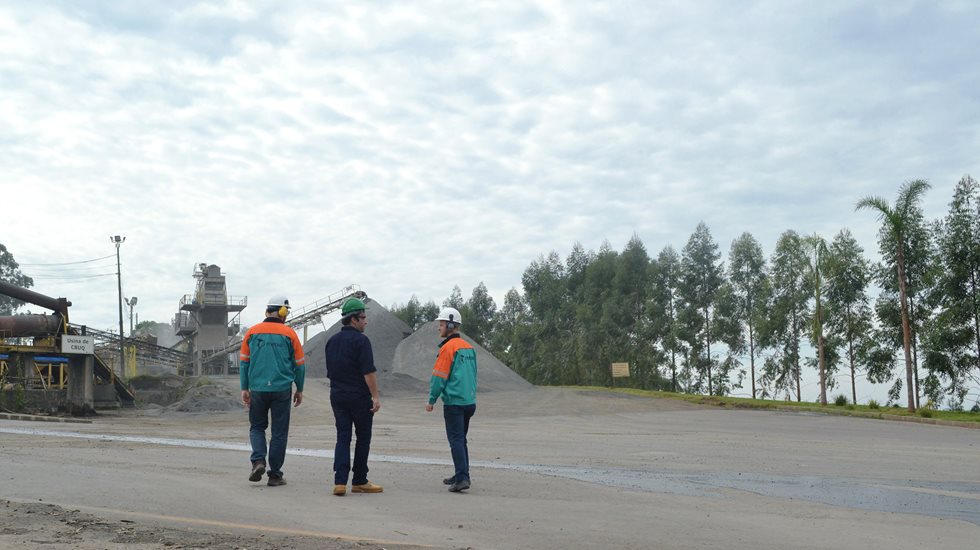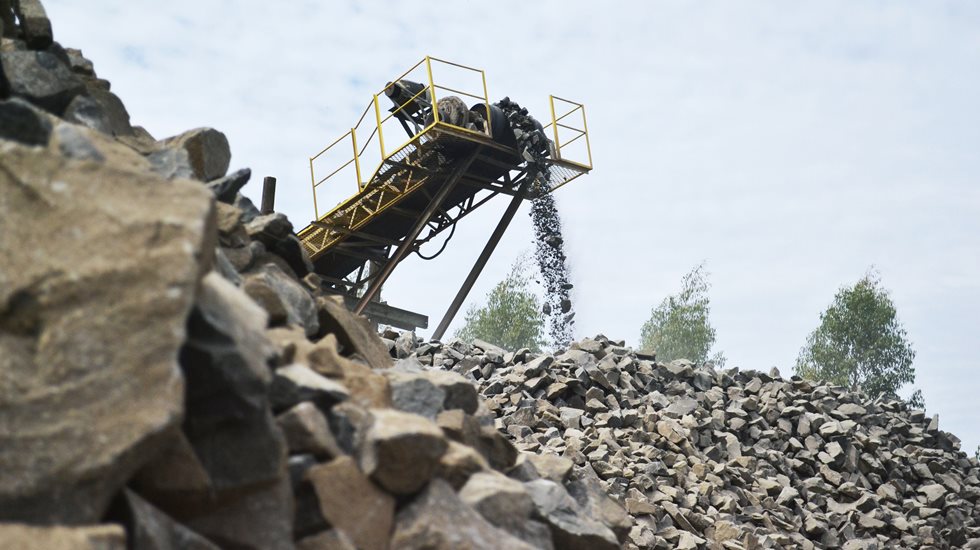Situated in the north of Paraná state, Brazil, Pedreira Guaravera has always stood out for its focus on products of higher quality and added value, directing its service to the concrete companies in the region, which demand a more cubical crushed stone and strict control of the particle size range. This philosophy guided the configuration of its crushing line, which until recently had a cone crusher in the secondary stage and a VSI crusher in the tertiary stage. "Although we obtained a homogeneous material in terms of particle size, this generated many fines in the process and represented a problem for our operation due to the lack of demand for this product in the market," explains Rodrigo Bastos, managing partner of Guaravera.
Automation system increases production by 40% at Pedreira Guaravera


The solution to the problem was presented by Metso, who proposed replacing the VSI crusher with an Nordberg® HP400™ model, shifting the old cone crusher from the secondary to the tertiary stage, with proper replacement of the linings used. "We also installed new screens for better classification of the material, getting a productivity gain, as well as eliminating the liabilities that the generation of a large amount of fines represented,” says Bastos. "However, the primary jaw crusher became too small for our operation and began to pose a bottleneck to the process," he adds.
According to Bastos, the current market situation did not support investments in a new primary crusher. Once again, Metso offered the solution by proposing crushing plant automation, which was a good, cost-effective alternative. At first, Bastos resisted the idea because he considered it inadequate for a very heavy industry with a workforce that is not well qualified, but soon he changed his opinion. "With Metso’s technical assistance, the system was implemented quickly and smoothly, enabling a 40% increase in the production of the primary crusher."
Basically, the technology used consists of sensors connected to an automation system that controls crushing feeding, manages the discharge of the trucks in the hopper, and monitors the crusher bearing temperature. The whole process is monitored by the operator using a display located in the control cabin. Additionally, the system generates operation and production reports. "We implemented the system looking for greater productivity and gained additional benefits, such as a unique standard in the material produced, regardless of the operator's ability in the cabin, and a set of information that gives us reliability for decision-making," says Bastos.
Gains in operation
Productivity and homogeneity gains in the product size range are due to the new sensors used to control feeding speed, causing the crusher to work with the crushing chamber full most of the time without overloading the crushing plant. Without this control, feed control was exclusively an operator's task, which used to result in variations in the volume processed and, consequently, in the quality of the material produced. In addition, the sensor installed over the hopper is used to control the traffic lights that manage the unloading of the trucks, improving the flow of material coming from the mine.
With the new system, Guaravera increased the transportation fleet between the mine and the primary crusher from two to three trucks, which now operates below the maximum load. "In this way, we maintain a constant cycle of operation and eliminate the unproductive time of trucks waiting, both for loading at the mine and unloading into the crusher," says Bastos. Prior to the plant automation, the quarry operated with an average of 50 to 60 truck trips per day, which increased to about 120 trips, allowing a continuous production flow.
Bastos also emphasizes that the system generates a set of important information for the management of the business, such as the time the equipment is operating effectively, whether it is working under load or not, and how many times the hydraulic arm is operated, as well as the time used in its operation. "Before, we had manual reports, but now the data is generated automatically and in real time, giving us better reliability and allowing for faster decision-making.” He explains that if, for example, the hydraulic arm is being excessively used, he immediately intervenes in the mine operation to improve blasting quality.
The system includes crusher bearing temperature sensors to help the maintenance management. They are used for detecting deviations and anticipating problems. "If the temperature rises above the specified standards, the quarry can go under a scheduled shutdown before the defect compromises other components and requires corrective action, impacting its operation," says Fernando Bicalho, senior automation engineer at Metso.
He explains that the system stores operation and production information for a week, but preparations are being made to connect it to a more robust, plant-wide management platform in the future. "When you talk about plant automation, people think about a major refurbishment or the installation of new equipment, but we are prepared to offer a solution tailored to the needs of each operation," adds Bicalho.
Bicalho points out that Metso offers all the technical support for implementing the automation system, for equipment supplied by the company as well as from other brands, reducing the installation time and the impact on customer operations. In the case of Pedreira Guaravera, for example, the assistance offered by Metso included everything from the installation of the sensors and other devices to the necessary adjustments to the electrical system and motor.
About Guaravera
With accumulated know-how, Pedreira Guaravera has a broad knowledge of the crushed stone market and its customers thanks to its team’s experience and qualifications.
In addition to the high quality of its products and with two industrial units (Ibiporã and Guaravera), its privileged location ensures speed in transportation at a low cost.
Pedreira Guaravera owns a soil laboratory, where it periodically carries out tests to prove the quality of its products.